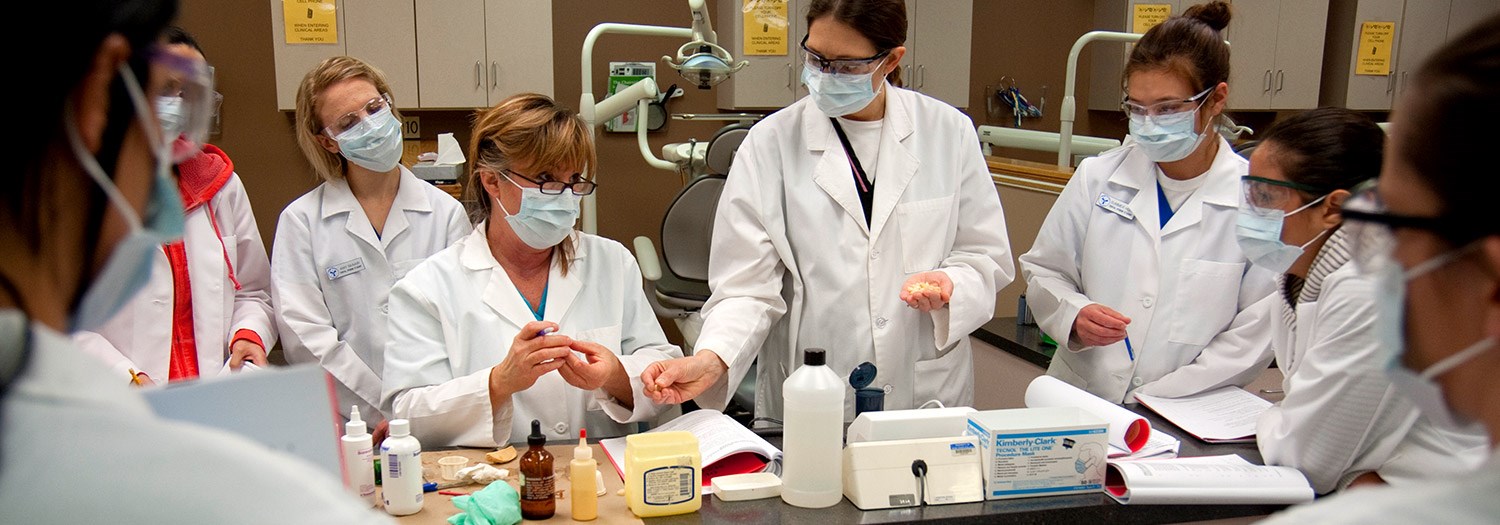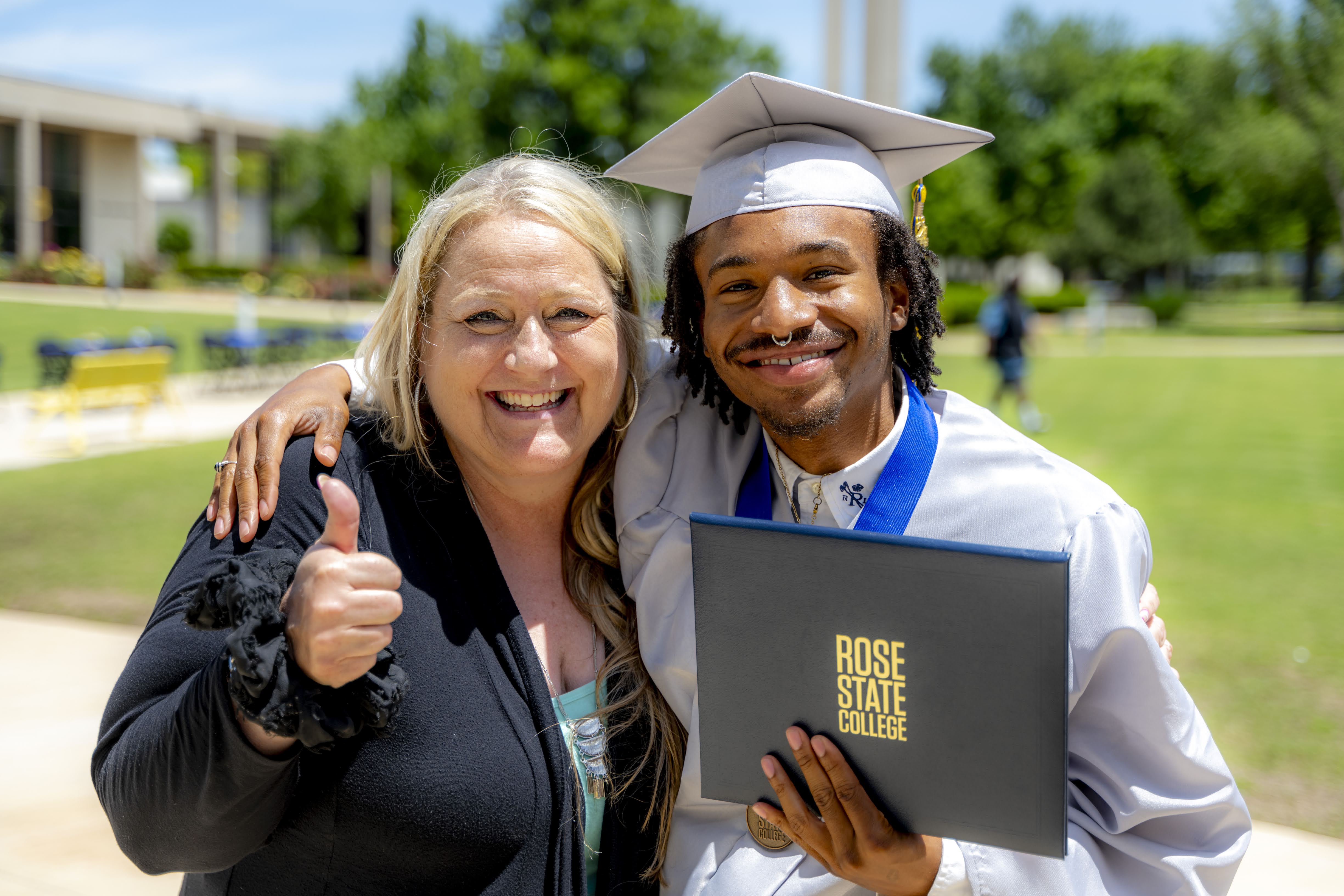FAQ
Why should I attend the Dental Assisting Program at Rose State College when there may be other programs in my community?
There are four distinct advantages for attending the Rose State College Dental Assisting Program: 1) Excellent reputation in the community which may aid in employment; 2) Small class size for excellent faculty/student interaction; 3) Board of Dentistry Expanded Duty Certificates offering graduates greater marketability; and 4) College credit for either certificate or degree program preparing graduates for further education in the future.
Rose State College has sponsored a Dental Assisting Program for over 30 years. Program faculty work closely with students in the classroom and in laboratory, pre-clinical and clinical sessions. The excellent student to faculty ratios provide students with valuable skills prior to rotation assignments and employment. Students work with dental students at the University of Oklahoma College of Dentistry and receive exposure to many dental practices in the metropolitan area. Due to our accreditation status and the Oklahoma Board of Dentistry approval, the program includes training for dental assisting expanded duty permits. In addition, completion of the accredited program provides eligibility to sit for the Dental Assisting National Board examination to obtain the CDA credential.
What are the employment opportunities for the Rose State College DA graduate?
The majority of graduates are employed in private dental offices as clinical chairside dental assistants. Other opportunities include office management, public dental health, education and administration.
What is the difference between the Dental Assisting Certificate Program and the A. A. S. Degree Program at Rose State College?
The Professional coursework is the same. The difference is the completion of additional courses required to earn the Associate in Applied Science Degree. The additional courses may be completed prior to or after the professional courses.
What are the chances of being accepted to the program?
Although only twelve students are selected each year, admission criteria benefits individuals with college level aptitude and high levels of self-discipline and organization. Recently, those accepted to the program had an average composite ACT score of 21 and an average college GPA of 3.0.
Do I have to have a criminal background check?
Yes. Applicants who have been accepted into the Program are required to complete a criminal and sex offender background check prior to the beginning of the first semester. Future employment and certification may be affected by the results of these background checks. it is advisable to check with the Oklahoma Board of Dentistry and the Dental Assisting National Board prior to program entry to inquire about obtaining state and national certification if you have a positive background check.
I currently hold a higher education degree. Do I still have to take the ACT test?
Yes. Applications without a current ACT score is considered incomplete and will not be considered.
Is the program offered on a part-time schedule?
No. The Dental Assisting Program is only offered as a full-time program.
Are program courses offered at night?
No. All of the Dental Assisting Program coursework is offered in the daytime.
When does the entering class begin?
All students admitted to the Dental Assisting Program begin their first semester Program coursework in the fall.
Are there any physical requirements needed for the Dental Assisting Program?
Yes. You can find more detailed information on the Dental Assisting Advisement Packet under the heading: Physical and Mental Qualifications, or you can view them here:
You must be able to safely and properly complete all tasks and activities involved in the classroom, lab, pre-clinical and clinical aspects of this program.
Are there any age, sex, or race restrictions or requirements?
No.
Will I be exposed to risks or hazards?
Yes. Like other allied healthcare professionals, you may be exposed to infectious diseases.
Dental and allied dental healthcare workers provide services in the oral cavity and came in contact with blood and saliva. Proper procedures for radiation health/safety, sterilization, infection and disease control, and personal protection are taught throughout the Program and strictly enforced.
I must work while going to school. Is this possible?
It is strongly recommended that students refrain from working while they are enrolled as a Dental Assisting Program student. Successful students' present high levels of discipline and organization and a work schedule can impede the progress and success of a student. The academic rigors and the time commitment for clinical and other school-related activities leave little time for employment. The program is scheduled as a full time college academic program. It is recommended that prospective applicants have a financial plan and savings in place to ease the stress of a decreased income.
Is financial aid available for Dental Assisting students?
Contact the RSC Financial Aid office at 733-7424 for details assistance. There are a few opportunities are available to enrolled Dental Assisting Program students. As with other course enrollments, financial assistance may be available to you in the form of loans, grants, scholarships, tuition waivers, etc., depending on need, academic performance, funds available and student performance.




